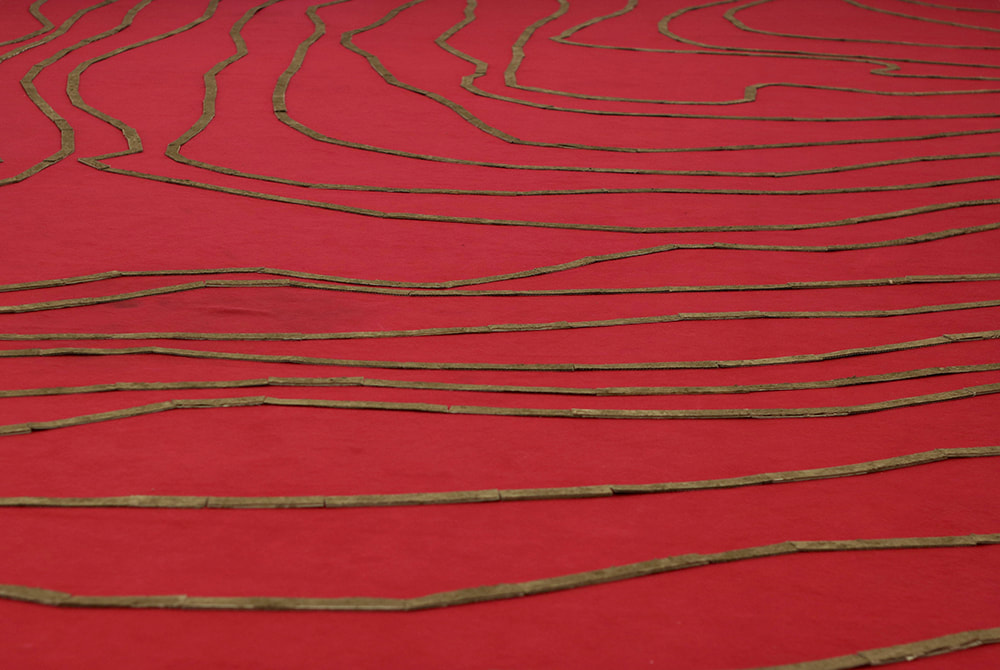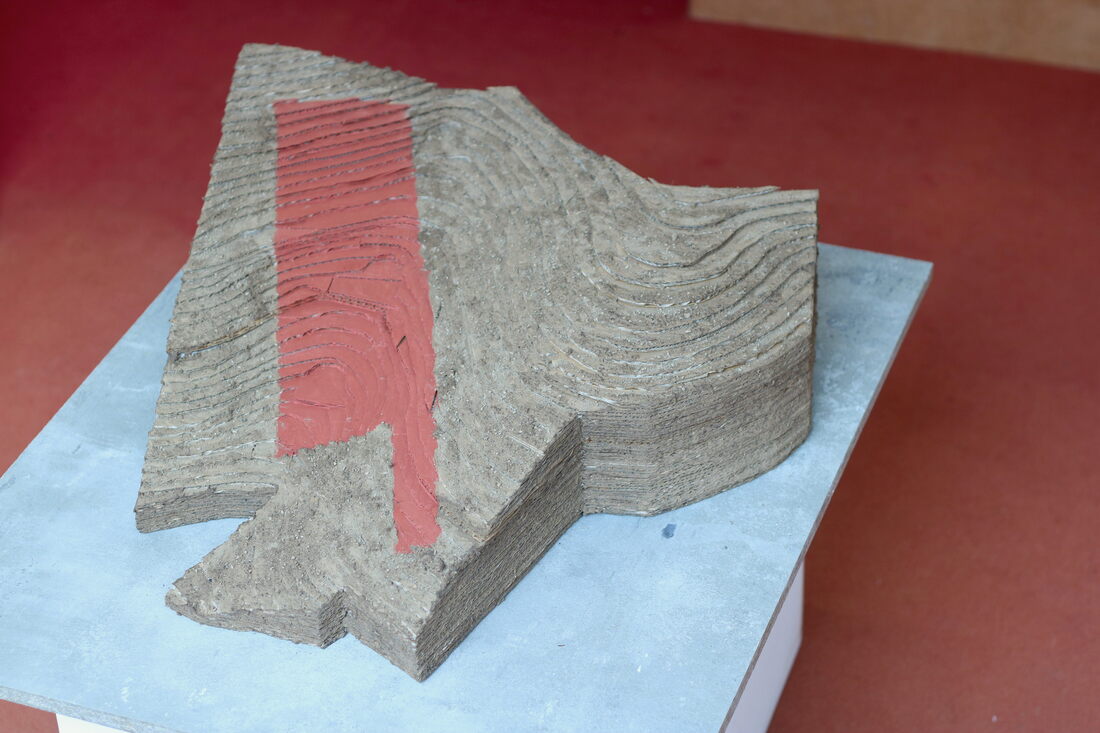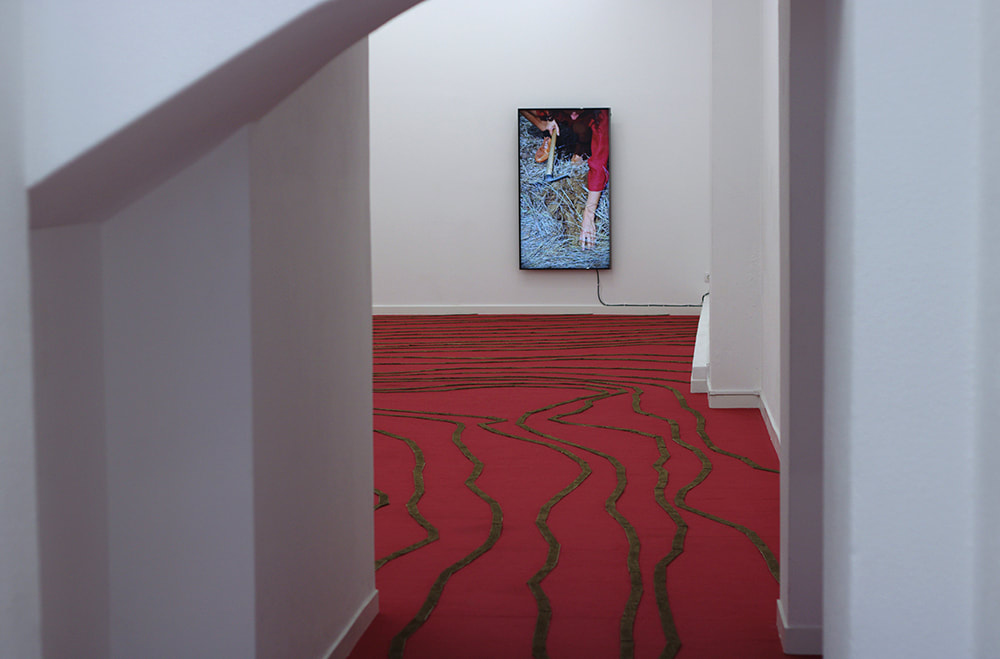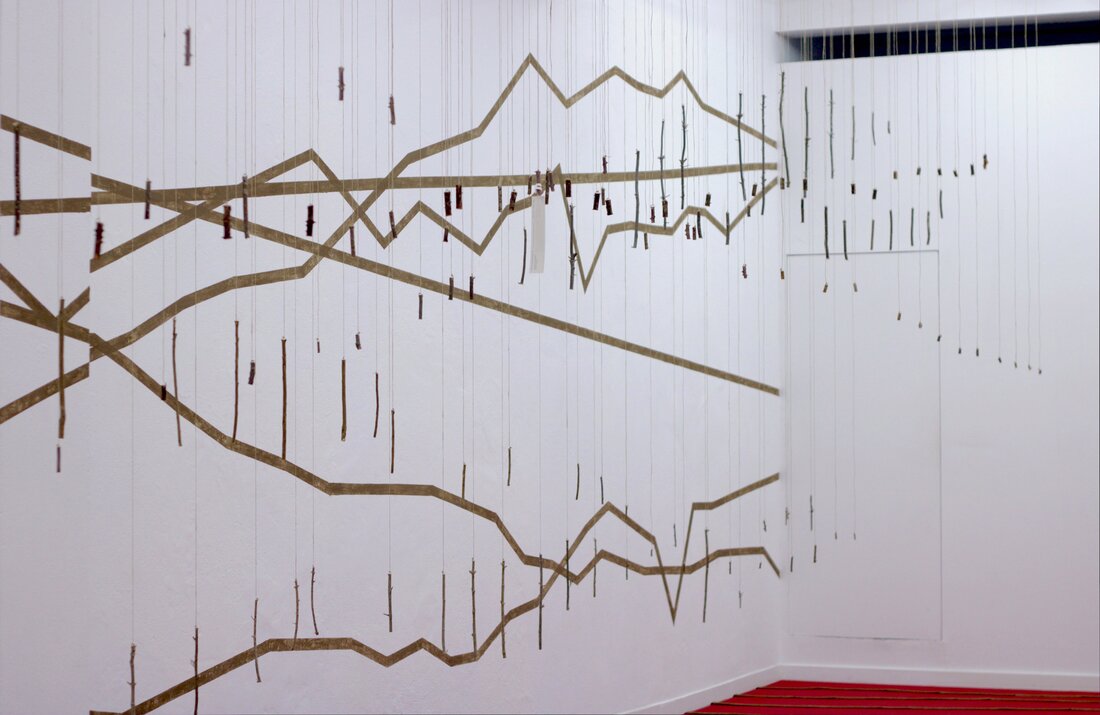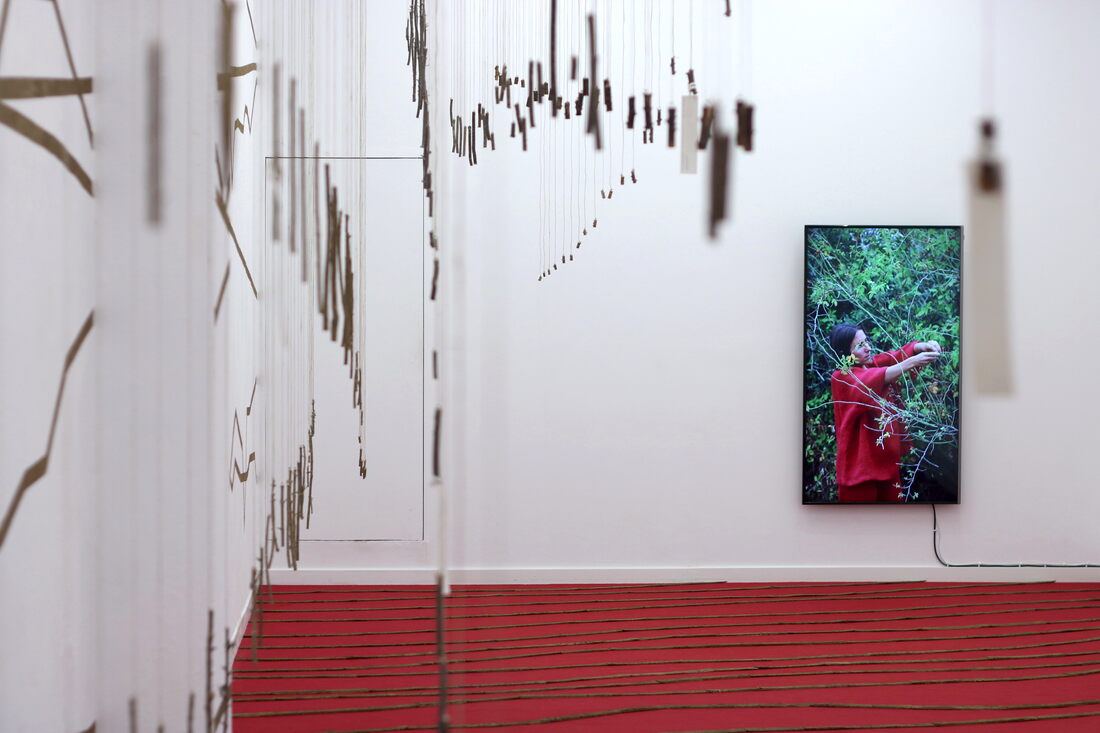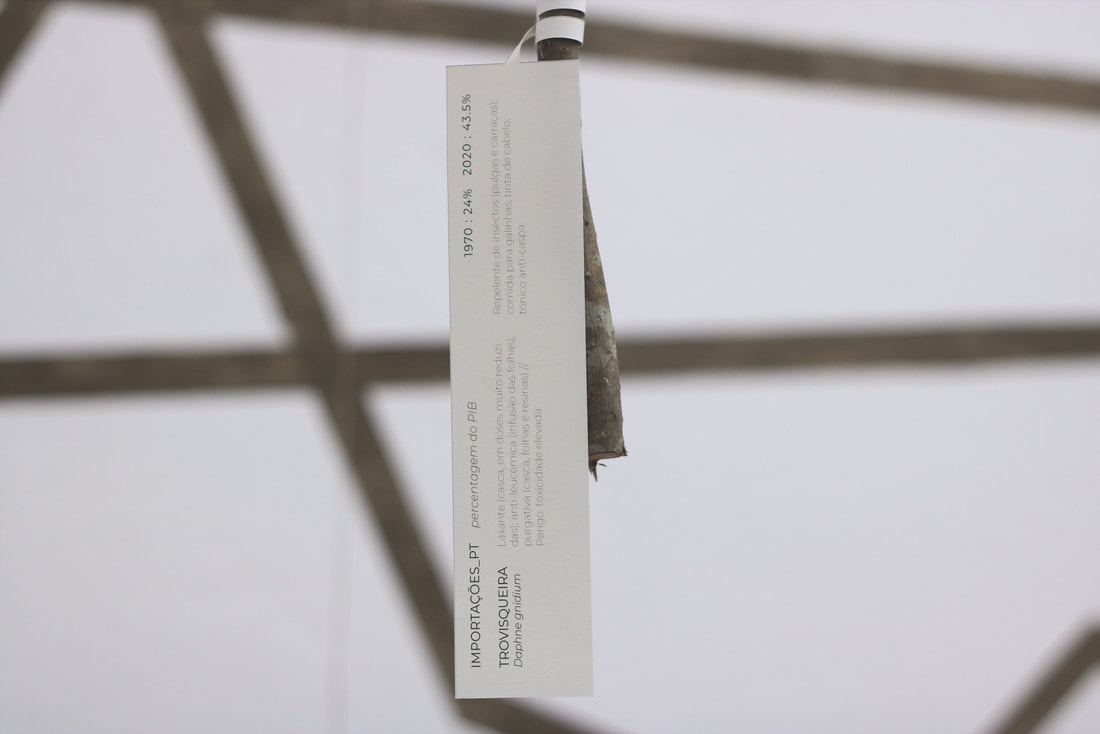TERRA QUENTE
/ WARM EARTH
collaboration with Rodrigo B. Camacho
2020
/ WARM EARTH
collaboration with Rodrigo B. Camacho
2020
|
17th October until
14th November 2020 Exhibition at Sismógrafo, Porto Materials: Floor - Earth (Frechas, Trás-os-Montes) with wheat flour glue and water, on cardboard with velcro. Wall - Graphic score painted with brown earth pigment (Frechas) with guar gum, water, clove oil and honey. Ceiling - twigs of Holly Oak tree, Broom, Olive tree, Wild Rose, Bramble and Gnidium; with variable lengths, hanging from a jute and hemp thread. Screen - 30 minute video: physical works in jute outfits (Frechas). 4 channel speakers - a 30 minute, 6 voice, sound piece; reading of the graphic score with excerpts from the 90's portuguese television show “Earth and Men“ (“A Terra e os Homens”). Model - maquette of a 2.5 hectare piece of land (Frechas): flour glue with water, guar gum; with a red pigment outline of Sismógrafo's floor plan, to a scale of 100:1. Bottles - an edition of 10 Wild Rose syrup ‘Terra Quente’ (Frechas). Books - available for consultation during the exhibition period. The guided tours were intended to go beyond the exhibition space, extending the discussion to food production, starting from the topographic understanding of the surrounding area, through the use of rudimentary mechanisms of measurement and mapping. The exhibition essay was entirely composed of transcriptions taken from interviews, debates and reports from the television show “Earth and Men”: In your opinion, has the Portuguese agriculture lost, or won? I think that these questions cannot be put in such simplistic terms. The Portuguese agroindustrial sector was practically an inexistent sector, especially in comparison with Europe. When I arrived in Portugal, I felt the shock of that backwardness; a backwardness that was technological, economic, social, cultural. Before joining the EU, in 1986, we didn’t have any proper structures for the slaughter of cattle. We didn’t have what we call an ‘agri-food industry’. Extremely outdated methods of production with low productivity levels. We are coming to a time, in which we will be forced or bound to alter many of our traditional habits and behaviours in agriculture. Most Portuguese farmers maintain social representations, which lead them to remain attached to the earth in ways that are, sometimes, not very rational. (...) |
|
subtitles available: select english or portuguese
|
|
